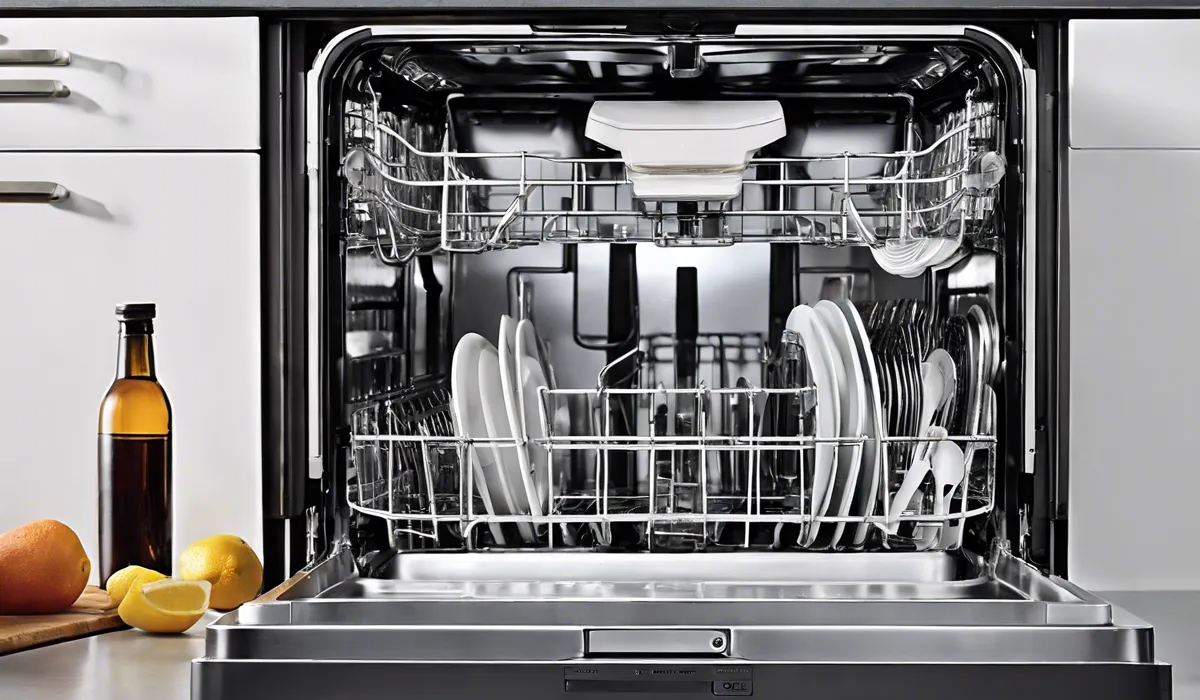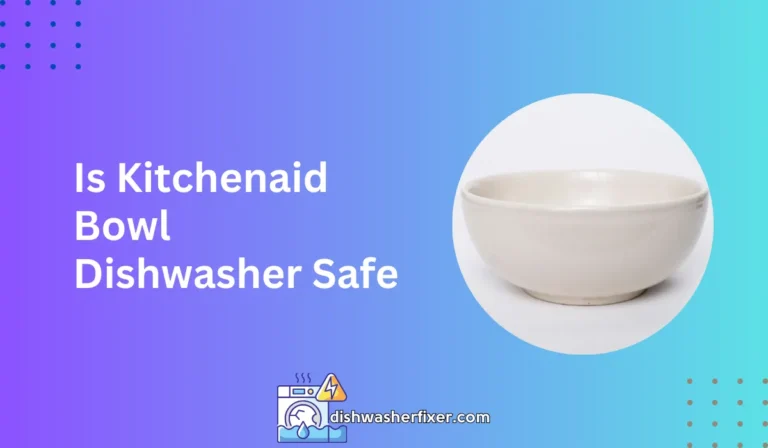How to Soften Dishwasher Water: Boost Performance & Shine!
To soften dishwasher water, add a salt-based water softener to your dishwasher’s salt compartment, usually located at the bottom. Ensure to use dishwasher-specific salt. Adjust the dishwasher’s softener unit according to the hardness level of your water supply, as indicated in the appliance’s manual.
Water Hardness and Its Impact on Dishwashers
Explanation of Water Hardness
Water hardness refers to the concentration of certain minerals in the water, primarily calcium and magnesium.
When water percolates through limestone and chalk deposits, it picks up these minerals, which can affect various household appliances.
Water hardness is measured in grains per gallon (gpg) or milligrams per liter (mg/L). Water with a high mineral content is considered ‘hard,’ while water with low mineral content is ‘soft.’
How Hard Water Affects Dishwasher Performance
Hard water can lead to a range of issues with dishwashers. The minerals can deposit on the heating elements, reducing efficiency and increasing energy costs.
Over time, the spray arms and filters can become clogged, leading to poor water circulation and less effective cleaning. Hard water can also cause etching on glassware, leaving them cloudy and dull after washing.
Signs of Hard Water in Dishwashers
There are several indicators that you may have hard water in your home. Spots and film on dishes after a cycle, a white residue on the dishwasher’s interior, and diminished cleaning performance are all signs.
If you’re noticing these issues, it’s likely time to consider softening your dishwasher water.
Methods to Soften Dishwasher Water

Using Rinse Aids Designed for Hard Water
Rinse aids are additives that help to reduce the surface tension of water, allowing it to run off dishes more easily and prevent water spots.
Some rinse aids are specially formulated to work with hard water and can significantly improve drying performance and clarity of your dishes.
Adding Water Softening Agents Directly into the Dishwasher
You can add water softening agents, such as dishwasher salt, to your dishwasher’s salt compartment. This helps to soften the water as it enters the machine, preventing mineral buildup and ensuring your dishes come out clean.
It is vital to follow the manufacturer’s instructions and adjust the dishwasher’s softener unit to the hardness level of your water supply.
Installing a Whole-Home Water Softener System
A whole-home water softener system treats the water at the point it enters your home, removing minerals that cause hardness.
This not only benefits your dishwasher but also other appliances and plumbing fixtures throughout your house. It requires an upfront investment but can save you money and hassle in the long run.
Using a Dishwasher with a Built-in Water Softener
Some modern dishwashers come with built-in water softeners. These units are particularly convenient as they automatically adjust to the hardness of the water, ensuring optimal performance without additional adjustments or additives.
Regular Maintenance to Prevent and Remove Hard Water Deposits
Regular cleaning and maintenance of your dishwasher are essential to prevent and remove hard water deposits.
This includes cleaning the spray arms, filters, and the inside of the machine. Regular checks will keep your dishwasher running smoothly and extend its lifespan.
DIY Solutions and Maintenance Tips

Homemade Dishwasher Detergent Recipes for Softening Water
Creating your dishwasher detergent can be a cost-effective way to combat hard water. A simple recipe includes ingredients like washing soda, baking soda, and citric acid, which work together to soften water and clean dishes effectively.
Vinegar as a Natural Descaling Agent
Vinegar is an excellent natural descaling agent. Running a dishwasher empty with a cup of vinegar can help to dissolve mineral buildup and leave your dishwasher smelling fresh. It’s a safe and eco-friendly alternative to chemical descalers.
Frequency of Cleaning and Maintenance to Prevent Hard Water Damage
To prevent hard water damage, it’s recommended to clean and maintain your dishwasher every one to two months, depending on the hardness of your water. This includes inspecting and cleaning the filters, spray arms, and seals.
Tips for Keeping Dishwasher Parts Free of Limescale and Mineral Buildup
To keep dishwasher parts free from limescale and mineral buildup, use dishwasher salt regularly, ensure that the rinse aid dispenser is filled, and occasionally run a cycle with a descaling agent.
It’s also a good idea to check and clean the parts where buildup is most common, such as the heating element and water jets.
FAQs About Softening Dishwasher Water
How do I add salt to my dishwasher to soften the water?
To add salt to your dishwasher, locate the salt compartment, usually at the bottom of the appliance, fill it with dishwasher-specific salt, and then close the compartment securely.
Where is the salt compartment in my dishwasher?
The salt compartment in a dishwasher is typically found at the bottom of the machine, often covered by a screw cap.
What type of salt should I use for my dishwasher?
Use dishwasher-specific salt, which is formulated to dissolve slowly and not clog the softener unit, unlike table salt or rock salt.
How do I adjust my dishwasher’s softener unit?
Consult your dishwasher’s manual to determine how to adjust the softener unit, which typically involves setting a dial or pushing buttons corresponding to the hardness level of your water supply.
How do I know the hardness level of my water supply?
You can find out the hardness level of your water supply by contacting your local water authority, purchasing a water testing kit, or referring to the documentation provided with your dishwasher.
Final Thoughts
To ensure your dishwasher operates effectively, add dishwasher-specific salt to the salt compartment at the machine’s base.
It’s vital to adjust your dishwasher’s softener unit to correspond with the water hardness level, as detailed in the manufacturer’s manual. This will optimize the performance and longevity of your appliance.





